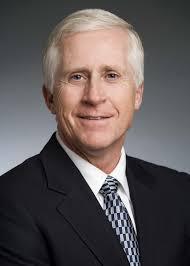An Interview with Catherine Strode
 Hospitals Need ‘Retail Mindset’ Says UCHealth CEO George Hayes
Hospitals Need ‘Retail Mindset’ Says UCHealth CEO George HayesFor the past 30 years, George Hayes has been involved in the administrative and operational duties of running hospitals. Prior to assuming his current position, President and Chief Executive Officer of Memorial Hospital (UCHealth), he served as President and CEO of the Medical Center of the Rockies for ten years.
|
|||||||
|
|

 Catherine Strode is the Consultant to the Health Care Advocacy Program. She holds a Masters degree in Public Administration with an emphasis in Health Care Policy. Formerly the Coordinator of the Program, Catherine publishes the HCAP newsletter featuring interviews with state legislators and represents the Program at meetings and events which pertain to policy matters.
Catherine Strode is the Consultant to the Health Care Advocacy Program. She holds a Masters degree in Public Administration with an emphasis in Health Care Policy. Formerly the Coordinator of the Program, Catherine publishes the HCAP newsletter featuring interviews with state legislators and represents the Program at meetings and events which pertain to policy matters.